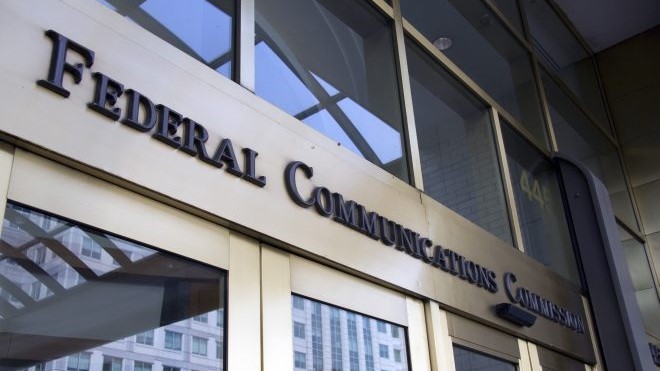FCC Grants NAB White Spaces Adjacent-Channel Protections
Broadcasters score victory in white spaces debate with Microsoft

The professional video industry's #1 source for news, trends and product and tech information. Sign up below.
You are now subscribed
Your newsletter sign-up was successful
WASHINGTON—Broadcasters have scored a victory in the debate with Microsoft over how the FCC should allow for more unlicensed broadband in the so-called white spaces between TV channels.
The FCC had signaled it wanted to allow more flexible use of the TV band by broadband providers, pushed by Microsoft—which petitioned for the changes to the Airband initiative to use white spaces spectrum to extend rural broadband access. Advancing rural broadband is an avowed priority for FCC Chairman Ajit Pai.
Given that the FCC was likely to have the votes to expand unlicensed use—the Democratic commissioners historically support expanded unlicensed use—the National Association of Broadcasters have worked with Microsoft on a compromise on four of five big relevant issues, but the fifth, allowing higher-powered unlicensed device use on channels adjacent to TV channels, had been the sticking point. NAB opposed it while Microsoft backed that use.
According to a draft of the item to be voted at the FCC's October public meeting, the FCC declined "at this time to allow higher power operation by white space devices when operating within the service contour of an adjacent channel TV station." It also said it would not change the methodology it used to protect authorized services—licensed TV broadcasters—from unlicensed signal interference.
While Microsoft and broadcasters had come to some meeting of the minds on other issues, the computer company remained opposed to broadcasters retaining the first channel adjacent to a TV station's channel as a buffer between stations and unlicensed users, something broadcasters said they need to protect against interference, certainly in the near term.
The FCC has given them that near-term buffer.
“The draft order would provide greater flexibility for white spaces operations without undermining the fundamental principle that unlicensed operations must not cause interference to licensed services," said NAB spokesperson Anne Marie Cumming. "We commend the Commission staff for their hard work on this item and their commitment to a consensus-based approach.”
The professional video industry's #1 source for news, trends and product and tech information. Sign up below.
Contributing editor John Eggerton has been an editor and/or writer on media regulation, legislation and policy for over four decades, including covering the FCC, FTC, Congress, the major media trade associations, and the federal courts. In addition to Multichannel News and Broadcasting + Cable, his work has appeared in Radio World, TV Tech, TV Fax, This Week in Consumer Electronics, Variety and the Encyclopedia Britannica.

